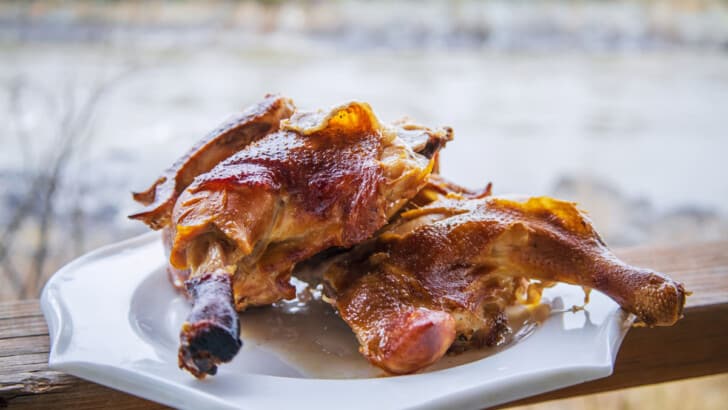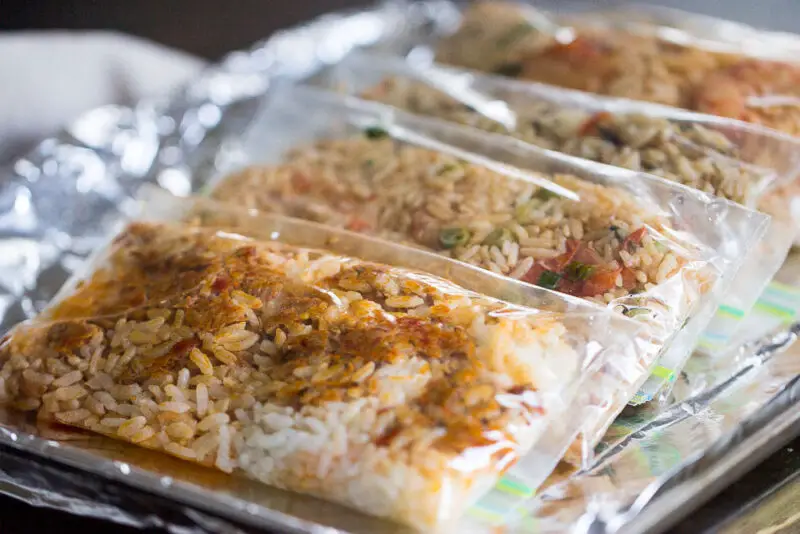Should Meatballs be Refrigerated Before Cooking?
Meatballs are one of the most popular dishes worldwide and can be found in different cuisines such as Italian, Swedish, and Turkish. However, enthusiasts have been asking for ages whether meatballs should be refrigerated before cooking or not.
In this article, we will explore the importance of proper food handling, the role of microorganisms in food spoilage and how refrigeration affects those organisms. We will also discuss arguments for and against refrigerating meatballs before cooking.
The Importance of Proper Food Handling
Food safety is crucial to maintaining good health. It is essential to handle food correctly from the time it’s purchased until it reaches your table to prevent contamination by harmful bacteria or viruses. A single contaminated meal can lead to serious illnesses such as food poisoning that may require medical attention.
The Role of Microorganisms in Food Spoilage
Microorganisms are tiny living organisms that exist all around us; they play an essential role in our ecosystem by breaking down dead organic matter into usable nutrients for living plants and animals. However, some microorganisms, such as certain types of bacteria, can cause severe illnesses when they contaminate food.
Certain factors such as temperature can foster bacterial growth; therefore, it’s advisable to store perishable foods under appropriate conditions. When these foods remain uncontrolled at room temperature above 40°F (5°C) for two hours or longer-their chances of becoming contaminated increase tremendously. Consequently leading what experts refer to as a “foodborne outbreak.”
Once bacteria thrive on foods, toxins that result from their activities cause several symptoms ranging from vomiting- diarrhea among others that could lead to more severe outcomes like kidney failure if left untreated.
It is critical that any procedure involving cooked meat meets minimum regulatory standards outlined by food safety agencies like USDA or FDA.
Refrigeration and Its Effect on Microorganisms
Refrigeration slows the growth and development of microorganisms by decreasing the temperature range and limiting moisture levels in foods thus extending its shelf life. Proper refrigeration helps maintain the nutritional value and quality of food.
Refrigerators have played a crucial role in food safety since their invention; they have contributed significantly to reducing food waste, prevent spoilage, and retain freshness in foods.
Factors to Consider When Refrigerating Meatballs Before Cooking
Before contemplating whether to subject meatballs to pre-cooking chilling as part of meal preparation, here are some essential factors to consider:
Temperature: Always ensure you store your meatballs at optimal temperature conditions that keep them fresh for longer. The optimum temperature range needs to be between 32°F -40°F (0°C – 5°C). Below or above this temperature affects the quality of meatballs even before cooking begins.
Humidity Levels: Maintaining adequate humidity levels in the refrigerator’s chilled compartment helps slow down the dehydration process of cooked and uncooked meatballs and also reduces odor transfer.
Packaging: Proper packaging is essential when considering to chill your pre-made meatballs before cooking. Ensure you place them carefully in sealed containers away from other foods that may affect the texture or introduce odors during storage.
Arguments For Refrigerating Meatballs Before Cooking
Several experts advocate for pre-cooking refrigeration of meatballs with benefits ranging from improving their texture production to better flavor profiles. Here are some specific reasons why you should chill your meatball mixtures before cooking:
Less Shrinkage: Storing ground beef mixtures-whether premixed or homemade- helps avoid shrinkage during baking or frying due to heat damage when exposed directly onto high temperatures.
Better Texture Production: Cold temperatures produce a firmer texture for your individual or grouped-up balls than ambient room temperatures would allow otherwise after shaping them into rounds.
Improved Flavor Profile: Chilling allows ingredients like eggs, breadcrumbs, grated cheese, seasonings, and condiments to infuse into specific flavored, creating an irresistible aroma enhancing taste with each bite.
Arguments Against Refrigerating Meatballs Before Cooking
Despite the apparent benefits of refrigerating meatballs before cooking, some circumstances may invite adverse consequences down the line during preparation. Here are some specific reasons why you should avoid pre-cooling your meatball mixtures:
Extended Cooking Time: Pre-chilled meatballs take longer to cook than room temperature meatballs as they start from a lower internal temperature due to being cold which extends cooking time and may compromise its texture if not watched carefully throughout the process.
Centrally Cooked Meatballs: Substantial chilling of ground beef mixture results in central portions that remain uncooked despite baking or frying for longer durations hence compromising food safety standards by harbouring bacteria density at centre.
Deli, Commercial Pre Made Meatballs: Deli meatballs are often made from a cooked mixture and served directly without any chilling period needed since both preparation and cooking occur in-house with temperature control equipment that allows safe food handling within guidelines.
Conclusion
In summary, whether or not you should chill your meatball mixtures before cooking depends on various factors ranging from their storage conditions to production process intended use- irrespective of individual preferences or recipes. It’s important to note that proper refrigeration will help retain freshness, nutritional value and quality while complying with minimum regulatory guidelines set by health agencies.
Proper handling, storage and precautionary measures shall maintain optimal food hygiene levels for loved ones who consume it in future.
Meatball recipe is a unique delicacy enjoyed by many worldwide on different occasions or restaurants; therefore , ensure whatever choice made regarding pre-cooking refrigeration processed aligns with recognized health standards mentioned above for best enjoyment.
Q&A
Q: Why should meatballs be refrigerated before cooking?
A: Refrigerating meatballs before cooking helps them hold their shape and prevents them from falling apart during the cooking process. The cold temperature also helps to firm up the mixture, making it easier to shape into balls.
Q: Can I skip refrigerating the meatball mixture before cooking?
A: While you can technically skip refrigerating the mixture, it is highly recommended to do so for best results. Not only does it help prevent the meatballs from falling apart, but it also allows the flavors of the ingredients to meld together.
Q: How long should I refrigerate meatballs before cooking?
A: It is recommended to refrigerate meatballs for at least 30 minutes prior to cooking, but they can be left in the fridge for up to 24 hours. This gives the flavors time to develop and allows for easy shaping of the mixture.
Q: What happens if I don’t refrigerate meatballs before cooking?
A: If you skip refrigerating the mixture before cooking, you may end up with meatballs that are too soft and fall apart easily during cooking. Additionally, without time for flavors to blend together, your finished product may not have as rich of a taste.





